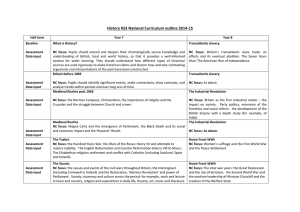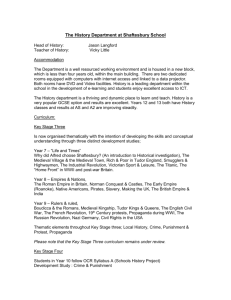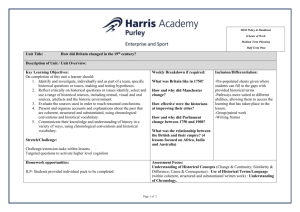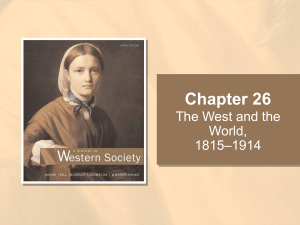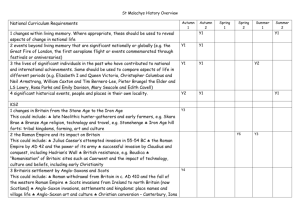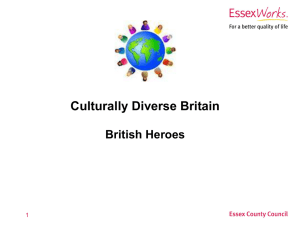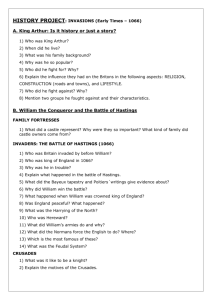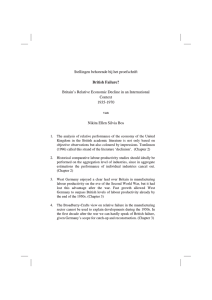The Development of The History Curriculum
advertisement
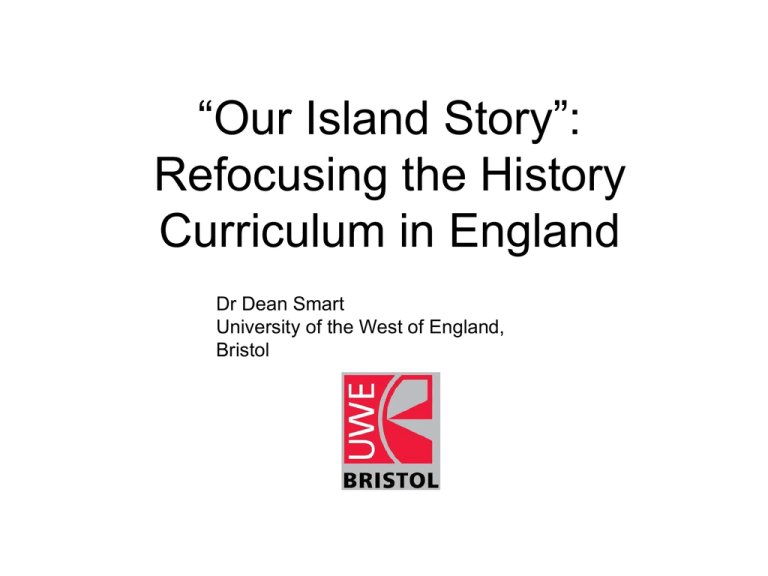
“Our Island Story”: Refocusing the History Curriculum in England Dr Dean Smart University of the West of England, Bristol The Schooling System in England Age 4-11 Phase Primary (KS1-2) 11-14 Secondary (KS3) 14-16 Secondary (KS4) GCSE 16-18 A levels National Curriculum Years 1-6 7-9 10-11 12-13 Curriculum Inheritance Little Arthur’s History of England http://www.amblesideonline.org/CM/la.html Our Island Story Henrietta Marshall 1905 Our Island Story. Children’s history of Britain , from the time of the Romans to the death of Queen Victoria, became an instant classic. Repeatedly reprinted up until its ‘final’ edition in 1953. Reprinted by Civitas in 2005 http://www.civitas.org.uk/islandstory/sample.htm New • Curriculum for primary • Curriculum for lower secondary • Examinations for upper secondary: 16 year olds 18 year olds • Models of schooling (Academies and ‘Free Schools’) • Teacher Standards Narrative or skills and concepts? Infant School Bloom's Taxonomy (Anderson & Krathwohl, 2001) Versions 1-4 Version 5 British History 1066 1485 the development of Church, state and society in Medieval Britain 1066-1509 1485 - 1750 the development of Church, state and society in Britain 1509-1745 1750 - 1900 ideas, political power, industry and empire: Britain, 1745-1901 1900 – Present challenges for Britain, Europe and the wider world 1901 to the present day (Including a study of the Holocaust) A local study (Including a study of the Holocaust) A local study British history from before 1066 A turning point in European History A unit about a nonat least one study of a significant society or European society from its issue in world history and its interconnections own perspective with other world developments National Curriculum 1990 1995 1999 2007 2014 version 1 2 3 4 5 Subject Strands (v3) 1 Chronology 2 Knowledge and Understanding of History 3 Interpretations of History 4 Historical Enquiry 5 Organisation and Communication Key Concepts (v4) 1 Chronological Understanding 2 Cultural, Ethnic and Religious Diversity 3 Change and Continuity 4 Cause and Consequence 5 Significance 6 Interpretation Key Processes (v4) 1 Historical Enquiry 2 Using Evidence 3. Communicating about the Past UK population: Ethnic Origin 2011 African/Black British/ Caribbean 3% Asian/Asian British 8% Mixed/Multiple 2% White* 86% (48.2m) (*of which: White British) 80.5% (45.1m) Other 1% Larkin 1977 Grey et al (2000:63) Grey et al (2000:63, detail) ‘talking heads’ . Brooks et al (2003b:31, detail) 7/7 2005 multiethnic group discusses the Transatlantic Slave Trade: Clare (2003a:80 and 81) Double page spread. Exploration 1% Great Exhibition 1% Empire 23% Religion 1% Class/Wealth 2% Historical Skills 2% Atom bomb/Japan 3% International Cooperation 3% Racism 3% Politics and Democracy 3% Trade 5% Japan 6% World Wars 6% Transatlantic Crusades 7% Slavery 21% Holocaust 13% Olaudah Equiano: Smart (2004:35)
